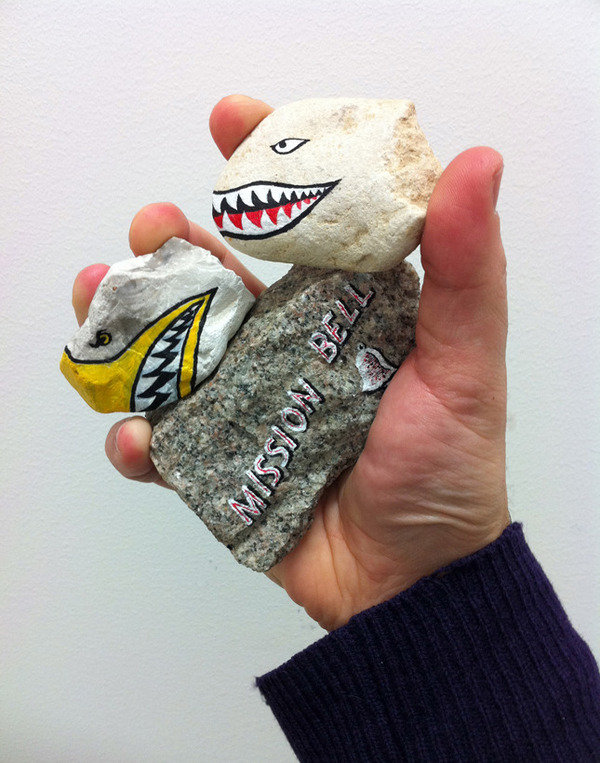Ahmet Ogut
dal 24/7/2014 al 5/10/2014
Segnalato da
24/7/2014
Ahmet Ogut
Horst-Janssen-Museum Oldenburg, Oldenburg
Apparatuses of Subversion. The artist examines the moments when governmental or economic players cross into the territory of the individual in order to regulate public space and thus cement the social status quo. He addresses not only the responses to protest movements in democratic societies and the application of disproportionate countermeasures but also identifies various sanctions and regulations of state control, surveillance and seclusion.

Curated by Anna Jehle and Anja Lückenkemper
With Apparatuses of Subversion, Ahmet Öğüt examines the moments when governmental or economic players cross into the territory of the individual in order to regulate public space and thus cement the social status quo. Öğüt addresses not only the responses to protest movements in democratic societies and the application of disproportionate countermeasures but also identifies various sanctions and regulations of state control, surveillance and seclusion. The artist pays particular attention to public space, which he sees as a zone for negotiation and interaction that is in constant need of renewal.
Öğüt thus depicts public space as situated between two extremes: the political stage and a restrictive space controlled through censorship and surveillance. As a political stage, public space holds a performative quality for the artist, it embodies a platform where a pluralistic society can show itself, where social dissent and marginalized opinions become visible. In its restrictive manifestation, public space represents the state's ever-increasing monitoring of its citizens. Especially since 9/11 the surveillance of individuals in the public arena or in their private spheres—once considered exceptional—has become the rule in government practice worldwide. The dystopian fantasy of the "transparent citizen" has since become a reality.
Against this background, Ahmet Öğüt's artistic work presents a detailed analysis of current power structures and governmental strategies in various cultural and national contexts. Using the resultant knowledge and skills, the artist employs subtle irony and humor to transform the observed mechanisms into their opposite, or to completely negate them. In Öğüt's works the instruments of exclusion turn into passages for transit, and organs of censorship become distributers of information. In the days of the NSA scandal and CCTV, and in a culture that increasingly practices the dissemination and exposure of one's own photo on the Internet—whether through Instagram or on Facebook—Öğüt confronts the exhibition visitor with the themes of surveillance and mechanisms of control. He expands upon this interplay in his new installation Pleasure Places of All Kinds (2014), in which public and private space collide in an absurd manner. Here the artist explores expressions of individual everyday resistance against strategies of state or corporate constraint.
The exhibition title, Apparatuses of Subversion, is a reference to Louis Althusser's 1970 publication, Ideology and Ideological State Apparatuses, in which the French philosopher distinguishes between two state apparatuses: the repressive and the ideological. Öğüt adds a third: the "Apparatus of Subversion," which entails neither the state's ideology nor its executive authority, but rather introduces a space for individual engagement and resistance.
About the artist
Ahmet Öğüt (born in 1981 in Diyarbakir, Turkey) is an internationally renowned sociocultural initiator and conceptual artist. For his work, Öğüt consistently seeks out collaborators from outside of the art world, finding unique ways to grapple with complex social issues ranging from migration to civil unrest with a sense of humor. His work has been seen in more than 20 international solo exhibitions in recent years, lately Strategies for a Radical Democracy (2014) in the Blackwood Gallery in Toronto, as well as in international group exhibitions and biennials, including most recently the 19th Biennale Sydney (2014); at the Witte de With Center for Contemporary Art in Rotterdam; at Performa 13 (New York, 2013); and the 12th Istanbul Biennial (2011). Öğüt's work has been granted numerous prestigious awards, including the Future Prize of the Gallery of Contemporary Art Leipzig (2010) and the Visible Award (2013). He lives and works in Amsterdam, Berlin and Istanbul.
Image: Ahmet Öğüt, Stones To Throw, 2011. Foto: Ahmet Öğüt
For press information please contact:
Anke Hansing
Tel. + 49 (0) 441 - 235 2905
Fax + 49 (0) 441 -235 3350
Anke.Hansing@stadt-oldenburg.de
Opening: Friday, July 25, 7pm
Horst-Janssen-Museum Oldenburg
Am Stadtmuseum 4-8 - D-26121 Oldenburg
Opening hours
Tuesday to Sunday from 10.00 to 18.00 hrs.
Mondays closed
Closed: 1.5., 24.12. und 31.12.
Open: All holidays on mondays: Easter Monday, Whit Monday etc.
Entrance fees
Day ticket: EUR 3,50
Reduced day ticket: EUR 1,50
Family ticket: EUR 7,00
School classes without guide: free entrance
School classes with guide: EUR 25,00
Groups from 8 people: EUR 1,50 per person
Groups with guide: EUR 35,00 + EUR 1,50 per person
Guided tours are available in English, French and Dutch. Please call us to book a tour.
fon: +49(0)441-235-2891
Public guided tour: entry fees + EUR 1,50
Combi ticket with the Stadtmuseum Oldenburg: EUR 4,00
Ticket for all museums in Oldenburg: EUR 6,00



